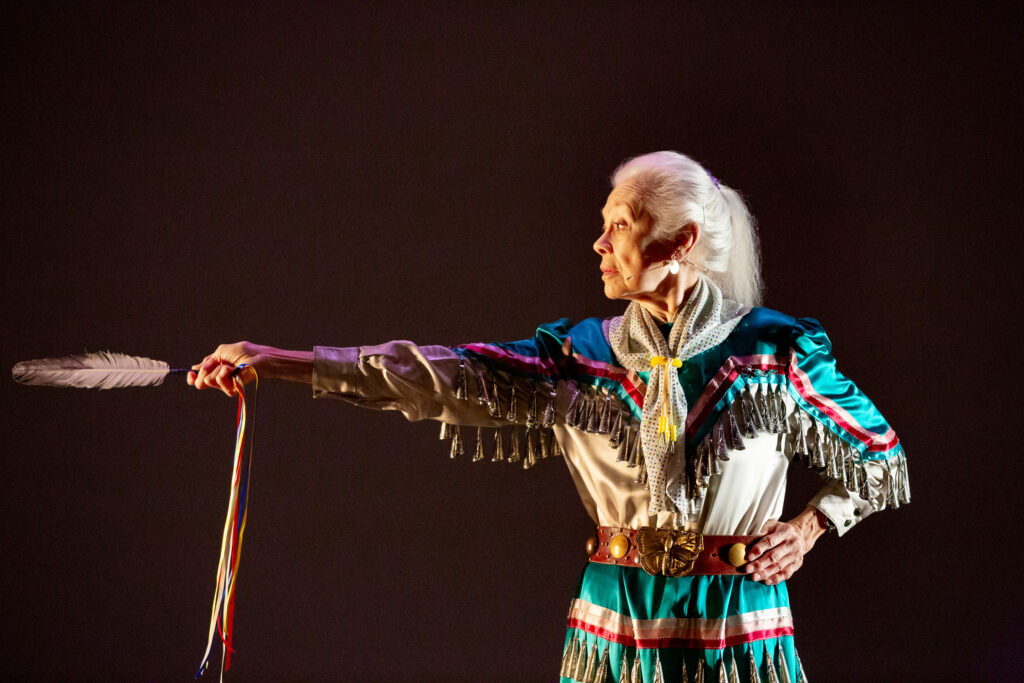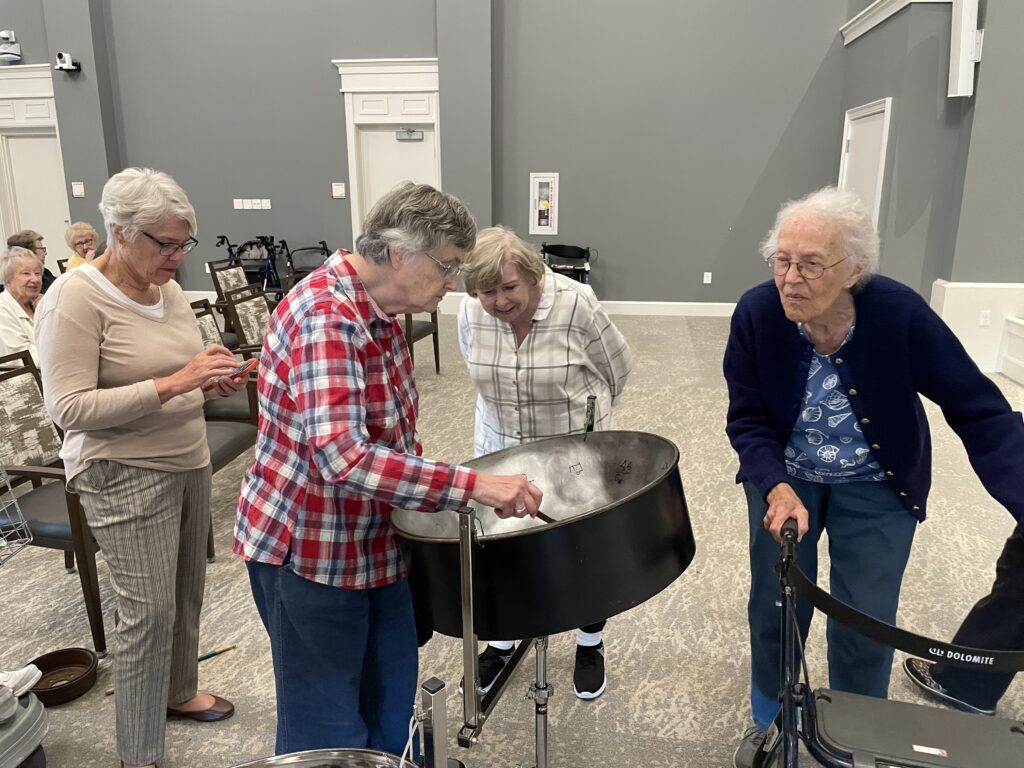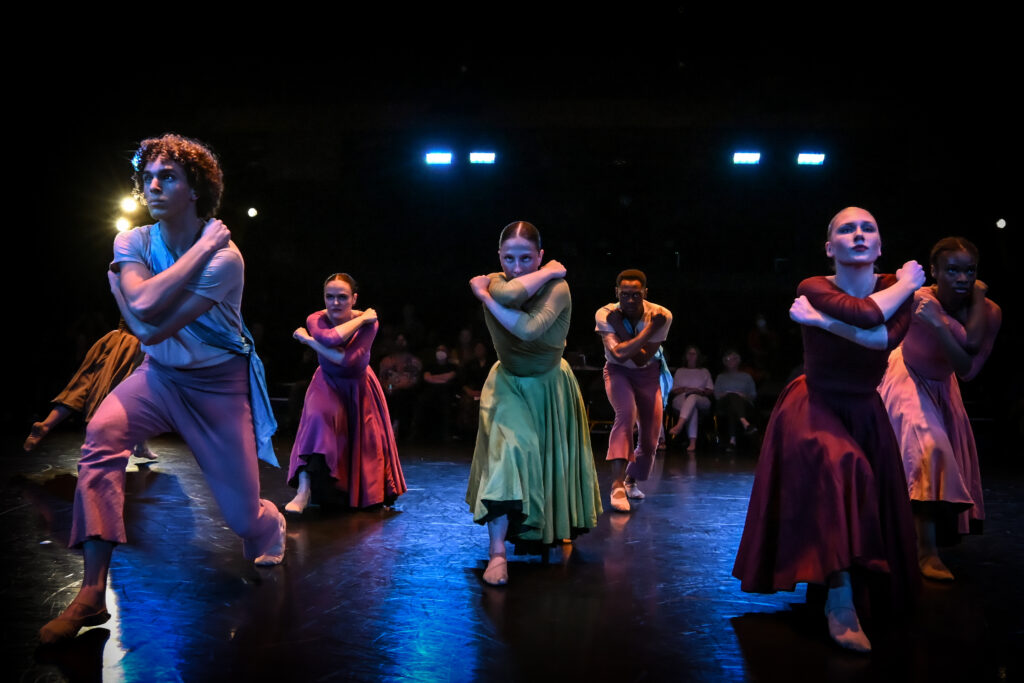Applying for GIG Fund: Arts and Wellness
GIG Fund: Arts and Wellness is a grant of $2,000 – $15,000 for nonprofits offering arts programs with a wellness focus in Midwestern communities.
It also offers professional development opportunities for grantees.

How to Apply
These guidelines are for grants to support arts and wellness activities in the Midwest. For grants to support general arts activities, please visit the GIG Fund page.
-
1
Read the guidelines
-
2
Prepare your application
Visit our grants portal, SmartSimple, to begin this process. Access detailed instructions on how to get set up in SmartSimple.
- 3
Complete and submit the application form
The next cycle of applications has an intent to apply form due on September 15, 2025 at 11:59 p.m. Central time and the full application due by September 29, 2025 at 11:59 p.m. Central time. Only one application will be accepted per organization.
Applicants may only apply for one GIG Fund grant per year. That means if you apply for a GIG Fund: Arts and Wellness grant, you should not apply for a regular GIG Fund grant.
The 2025 cycle is now open. Intents to Apply are due September 15, 2025, with final applications due September 29, 2025.
5 Tips for Combining Arts and Wellness in your Programming
Explore tips and examples for how to design arts programming that supports personal and community wellness.
 Photo Credit: Thomas Sigel
Photo Credit: Thomas SigelGuidelines
The goal of GIG Fund: Arts and Wellness is to provide flexible grants to Midwest nonprofits that provide artist-driven community wellness programming. Funds may be used for performances, workshops, programs in clinical settings, creative aging programs, efforts that engage veterans in the arts, etc.
Who should apply?
- Non-profit Organizations: 501c3 non-profit organizations, hospitals, and clinics; and tribal organizations of any budget size.
- In the Midwest: Organizations located in Illinois, Indiana, Iowa, Michigan, Minnesota, North Dakota, Ohio, South Dakota, or Wisconsin, and the Native Nations that share this geography.
- Focused on Arts & Culture: Arts and cultural organizations in any arts discipline (literature, performing arts, visual arts, traditional arts, multidisciplinary arts, etc.), nonprofit organizations that provide arts programming (social service agencies, etc.), or hospitals or clinics that provide arts programming.
- With a UEI: Organizations will need to have a UEI number from SAM.gov in order to receive funding. Apply for a free UEI at SAM.gov.
- In Good Standing: Organizations must not have overdue reports or funding restrictions with Arts Midwest.
This round of GIG Fund grants is for supporting activities taking place between December 1, 2025, and June 30, 2026. There are three requirements.
1) Engage a Professional Artist or Ensemble
- A portion of the grant award must be used to pay the artist(s).
- Artists can be from anywhere, including the applicant’s own community.
- Artists must demonstrate high artistic, educational, or cultural value as understood by the target community.
- Artists must be at least 18 years old and not be full-time students.
- The artist and their work must be the focus of the engagement.
2) Offer at Least Two Activities Featuring the Artist(s)
- Activities must incorporate an arts and wellness theme*.
- Activities should feature an educational component that allows direct interaction between artists and participants. Examples include:
- Workshops & masterclasses
- Lectures, panels, or demonstrations
- Meet-and-greets or talkbacks
- Activities may be in-person and/or virtual.
- Activities must take place in an accessible facility or on an accessible online platform.
*Arts Midwest recognizes the field of arts and wellness to be far-reaching and applicants should identify how their arts project addresses some element of health and wellness. The focus area may include but is not limited to: creative aging; arts and mental health; arts and social isolation; arts and disability; veterans arts programs; etc.
Eligible project examples
Sample activities could include:
- Music & Memory – An arts school presents musical performances and talkbacks for people with dementia.
- Healing Through Art – A hospital partners with artists to provide programming with patients or visitors (appropriate licensure required if working with patients in a prescriptive/therapeutic way).
- Veteran Voices – An artist leads a creative writing program for veterans.
- Inclusive Exhibitions – A gallery hosts an artist talkback and meet-and-greet in an exhibition featuring the work of photographers with disabilities.
- Music for Elders – An arts council offering provides music outreach programs in nursing homes.
- Theater & Community Wellness – A rural theater creates a performance series that addresses loneliness and social isolation.
- Arts in Healthcare – A clinic hosts an artist residency to engage patients and staff.
- Mental Health & Theater – A university bringing in a visiting theater company to stage a production and offer workshops on mental wellness.
Ineligible Project Examples
The GIG Fund: Arts and Wellness grant does not support the following types of projects:
- Capital projects
- Independent artists seeking funding for their own self-produced material. A guest artist must be featured.
- Projects that feature mostly student performers.
- Artist fellowships/scholarships
- Projects that are not arts focused (e.g. fireworks displays, conference speakers, etc.)
- Projects that are part of a benefit or fundraiser.
- Projects that are funded by another active Arts Midwest program.
- Projects funded by another federal grant.
- Arts prescription programs.
- Projects requiring licensure, such as various types of arts therapy (unless the applicant can provide proof of licensure for the engaged artists).
- Projects that focus on research and planning.
Professional Development
With support from The Hearst Foundations, Arts Midwest will offer professional development opportunities to grantees to strengthen arts and wellness initiatives across the Midwest.
Organizations participating in the GIG Fund: Arts and Wellness grant program will have access to virtual gatherings, professional development sessions, and panel conversations.
Details and dates for these opportunities will be announced in Fall 2025.
Organizations may request a grant between $2,000 and $15,000. These grants are federal funds that derive from the National Endowment for the Arts. A 1:1 match is required. Please read the following important notice about federal policies that govern these grant awards.
Matching Requirement
Organizations will be required to demonstrate matching funds (aka cost share) on a 1:1 basis for the grant amount.
To demonstrate the match, your expenses should each be at least double your GIG Fund grant request. Potential sources for the match may include:- Salaries and wages for project staff
- In-kind contributions, volunteer hours
- Earned and contributed revenue (donations, ticket sales, other non-Federal grants)
- Cash from the applicant or partner organizations.
- Federal funds cannot be used as match.
Eligible Expenses
Eligible expenses include but are not limited to: Artist fees (required), materials (e.g., paint, costumes, props), staff salaries to administer the project, software licenses to host virtual activities, facility rental, equipment purchases, accessibility accommodations for individuals with disabilities or auto-immune conditions, marketing and promotion, and artist travel.
For all grant applications, we use an online platform called SmartSimple. Applicants will need to register if they are new to using the system.
Previous applicants and grantees will be able to access the application by visiting the “Begin a new application” tile on the “Grants for Organizations” home page.
Step 1: Intent to Apply (Due September 15, 2025)
Questions and requirements:
- Applicant organization details (EIN, UEI number from SAM.gov, annual operating budget, mission statement, organization location information, publicity name).
- Primary contact information
- Short summary of proposed project (100 words)
- Short description of project activities (250 words)
- Have you received funding from Arts Midwest before? (yes/no)
- Have you received funding from your state arts agency in the last five years? (yes/no)
- Do you anticipate your local state arts agency will fund this project? (yes/no)
- Project start and end dates
- Grant request amount
Step 2: Full Application (Due September 29, 2025)
- Project discipline
- Number of anticipated adults served
- Number of anticipated youth served
Narrative questions
- Artist summary (500 words)
Please provide details about the artist(s) you intend to work with. Why have you chosen them?
- Activity summary (500 words)
Describe the two proposed project activities that feature the artist/ensemble, including where and when they will take place. If exact dates are unknown, please provide a range of possible dates/months.
- Describe the wellness impacts of your program (500 words)
Please describe the wellness goals of your project and how your programming advances those goals in your community.
Other required information
- Project budget
- Additional details about your budget (optional)
Panel Review Process and Criteria
Applications are reviewed by an independent advisory panel. That panel is composed of arts experts and other individuals with broad knowledge of community programs. Panel composition changes annually.
The panel will use four criteria in the review process. Each criterion is on a scale of (5) for a maximum of (20) points per application.
Grantees are selected based on:
- Artistic excellence and merit of programming. The panel will review the artist and activity summaries to assign these points.
- Depth of wellness engagement. The panel will review the community summary and data provided on intended wellness outcomes to assign these points.
- Resource management. The panel will consider the applicant’s ability to manage and implement a federal award. This could include organization capacity; reasonable budget plans; etc.
- Planning for success. The panel will evaluate the plan for using the grant funds including proposed project activities and audiences reached.
Timeline
- September 15, 2025: Intent to Apply due
- September 29, 2025: Full Application due
- October 2025: Panel Review
- November 2025: Applicants notified, awards made, awardees announced
- December 1, 2025 – June 30, 2026: Funded projects take place
Webinar and Office Hours
If you have additional questions, we invite you to join us for a webinar or office hours. You can sign up for any session at the links below:
- Webinar: July 24 at 11:00am Central Time. Register here.
- Office Hours: August 12 at 10:00am Central Time. Register here.
Timeline
- September 15, 2025: Intent to Apply due
- September 29, 2025: Full Application due
- October 2025: Panel Review
- November 2025: Applicants notified, awards made, awardees announced
- December 1, 2025 – June 30, 2026: Funded projects take place
Webinar and Office Hours
If you have additional questions, we invite you to watch our informational webinar or join office hours.
Office Hours: August 14 at 2:00pm Central Time. Register here.
Accessibility
We want this opportunity to be accessible to all and will work with applicants who need to use other means to apply. Alternative application options may include, but are not limited to:
- Using an adapted form in Microsoft Word (available upon request)
- Sharing a video application (available upon request)
Please complete this form if you are requesting accessibility assistance or email [email protected]
Visit our Accessibility Policy for more information on our commitment to accessibility.
SmartSimple
Arts Midwest is now collecting applications through a new grants management platform called SmartSimple. Before you apply for a grant opportunity, you’ll need to register your organization in the system.
 Photo Credit: Jess Cavender
Photo Credit: Jess CavenderHave questions about the GIG Fund: Arts and Wellness?
We’re happy to answer any questions you have about the GIG Fund: Arts and Wellness. Be sure to check out our FAQs, or send us an email.
GIG Fund FAQ Contact Our Team - 3